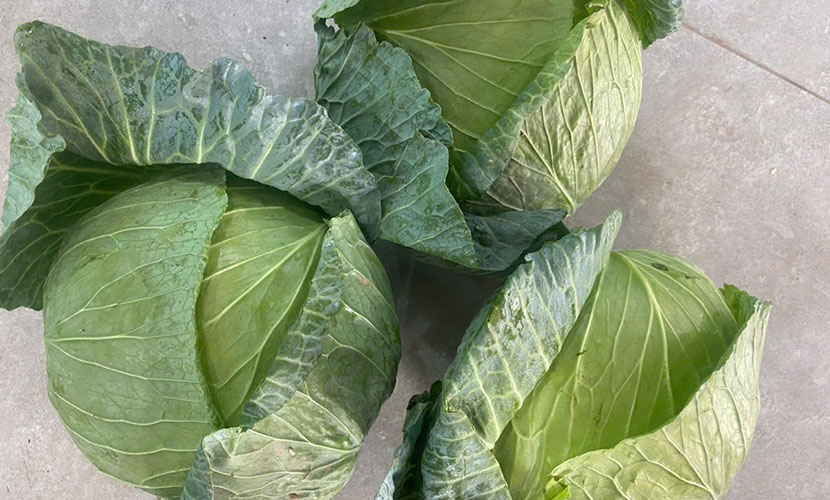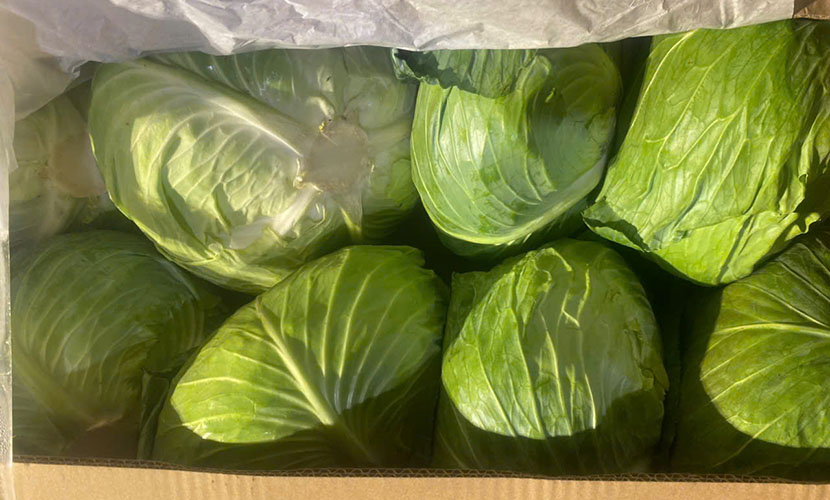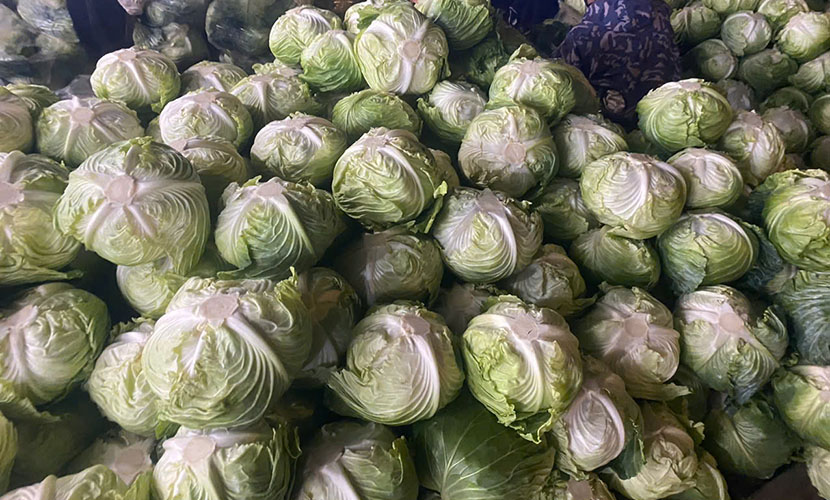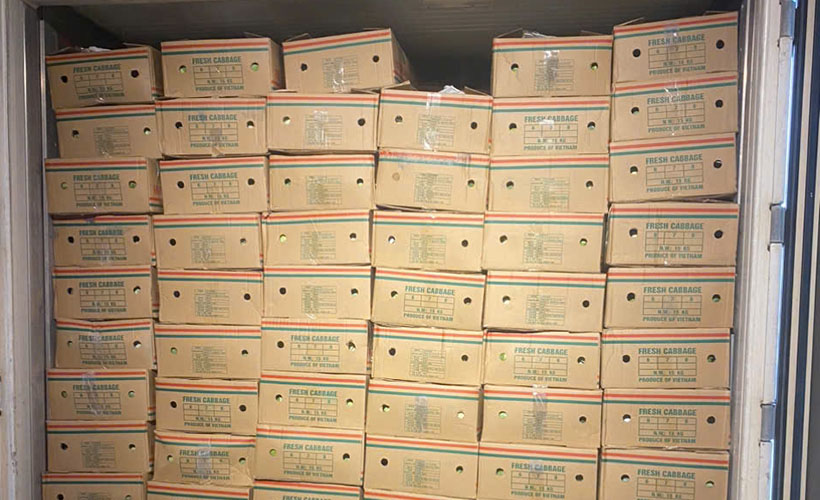
In late February 2025, local farmers joyfully went out to harvest fresh cabbages. Traders were also happy to buy the giant and beautiful cabbages. Especially, fresh cabbages were free from pests.

Fresh cabbages from Vietnam
When we arrived, Mr. Huan had just sold nearly 200 kilograms of fresh cabbages to traders. The nearly 60-year-old farmer smiled and said, “This cabbage season has been a big win for my family”. He expected total yield of fresh cabbages reached over 10 tons, earning more than VND 200 million.
With a total area of 1.5 hectares, his family dedicated 1 hectare to growing one crop of cabbage, one crop of melons. In addition, he used the remaining land to dig a pond for breeding grass carp.

Fresh cabbage packing 15kg net
This season, fresh cabbage yield has increased significantly. Also, pests have been fully controlled. This result comes from the Cooperative’s participation in the project “Enhancing the Safe Crop Value Chain in Northern Vietnam”. This project was been supported by the international organization JICA (Japan) and the National Agricultural Extension Center since 2023.
When participating, Mr. Huan and other members of the Cooperative received financial and technical support. In addition, they learned how to approach safe crop production and marketing methods introduced by JICA.
In the past, Mr. Huan and many farmers often used inorganic fertilizers and sprayed pesticides whenever pests appeared. All of which led to hardened and depleted soil. This not only resulted in low yields but also increased costs. Especially, it posed health risks due to direct contact with chemical fertilizers and pesticides.

Fresh cabbages with one outer leaf
However, since joining the project, farmers’ cabbage rows have become lush again, with loose, healthy soil free of diseases. Mr. Huan shared: “Under Japanese experts’ guide on how to compost organic fertilizers and use biological pesticides, our fresh cabbages are always lush. Moreover, yields have increased and each cabbage weighs over 3kg. We are very happy.”
In an interview, Mr. Cuong from the Giao Ha Agricultural Cooperative stated that the cooperative’s production area has been certified for safe production. The safe production area covers 6.48 hectares of Vietnam’s cabbage. The main products are cabbage, kohlrabi, cauliflower, and melons.
Local farmers have many years of experience in producing safe vegetables and fruits. Therefore, when they have been fully trained in VietGap production processes, they have applied them effectively. The cooperative’s vegetables are highly praised by customers for their quality, appearance, and safety.

Cabbage boxes from Agrideco Vietnam Co., Ltd.
In addition to participating in the project supported by JICA, the cooperative members also regularly receive training in VietGap production processes. Also, they take part in study trips to visit other cooperatives to enhance their production and product marketing capabilities.
Currently, the cooperative has formed a production and sales group consisting of 11 members. Additionally, there is an internal monitoring group that regularly supervises the compliance of the farming households.
Mr. Cuong also expressed concerns that the cooperative’s products are not yet stable and still depend on traders. Therefore, the cooperative hopes to collaborate with, businesses, distributors, supermarkets, food stores, canteens, and exporting companies.

Cabbage raw materials from Agrideco Vietnam Co., Ltd.
According to an exporting company of fresh cabbage, if we only grow vegetables using conventional methods, we will not be able to compete. Therefore, we must change to grow clean vegetables that meet food safety requirements.
If we cannot control pesticides and fertilizers well, vegetables will “never be clean.” This project will help farmers create vegetables that “speak for themselves” by recording and caring for them daily, allowing the vegetables to reflect the true value they bring.

Loading fresh cabbages for customers
“Currently, the only concern is not having clean vegetables, as there is no shortage of markets. However, if the vegetables cannot ‘speak for themselves’ and are not clean, no one will buy them,” A Jica expert said. He also added that in the future, Jica would support and guide the cooperatives participating in the project to introduce their vegetables into some supermarket chains in Japan.
This expert believes that when our products conquer the demanding markets, we must ensure they are “very clean and very good.” At the same time, we are aware of branding, logos, and labels.
Vietnamese source: https://danviet.vn/nong-dan-nam-dinh-trong-bap-cai-khong-lo-theo-kieu-nhat-ban-thuong-lai-xuong-tien-mua-ca-ruong-20250221212309934-d1211983.html
